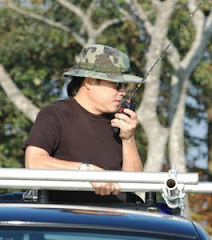Wednesday, 9 February 2011
Test Baby - HomeAway Commercial for 2011 Super Bowl XLV - Ministry of D...
Test Baby - HomeAway Commercial for 2011 Super Bowl XLV - Ministry of Detourism
Hello! The Ministry of Detourism, with me as Minister, is tasked with saving vacations. My first act as Minister: make sure you watch HomeAway's amazing commercial, airing during the Super Bowl on February 6th! Watch it! Share it! Oh, Glorious!
Having disturbed millions with his Super Bowl ad showing a baby getting thrown at a window, HomeAway.com CEO Brian Sharples has issued a very long and quite conflicted semi-apology. The note is more than 1,000 words long—a whopping 14 paragraphs in all. Here's the best line: "We do not believe the ad will result in an increase in violence towards babies, just as last year's Super Bowl ad featuring Betty White didn't lead to an increase in elderly women being tackled in parks." Still, Sharples concedes that "we made a mistake in judgment, and for that all of us at HomeAway are truly sorry. We failed to understand the reality that every day some families live with the consequences of accidents, and even violence that has caused their child a brain injury." Notably, HomeAway is also now referring to the baby as a "doll," rather than a "test baby." But Sharples can't get out of his own way, pausing briefly to mention that "the traffic generated to the HomeAway website has exceeded our highly successful Super Bowl ad from 2010. But none of this matters when it comes to doing the right thing." At another point, he brings up the fact that his co-founder's son has Down syndrome—apparently suggesting that he understands suffering involving children. It's weird. After 1,000 words, Sharples seems both contrite and indignant. So, which is it? See the full message after the jump.
HomeAway CEO Addresses Controversy Over "Test Baby" Super Bowl Ad
Like all advertisers on the Super Bowl, many of us at HomeAway spent the time after the event following the reviews, comments and performance of our ad. Some of the comments we had expected; others took us by surprise. We know our ad has offended a group of people, so I want to address why we ran the ad and what we intend to do from here.
First, on behalf of everyone at HomeAway, I want to assure you we love families (and of course, babies). Each and every month, we work tirelessly to help connect hundreds of thousands of families with spacious and affordable vacation homes that help them relax and enjoy the comforts of home during their travels.
We created the "test baby" campaign to highlight pitfalls when families squeeze into small spaces, and to shed light on the benefits of space, value and privacy of vacation rentals. We ran this campaign to generate awareness of vacation rentals, and drive traffic to the hundreds of thousands of vacation homes advertised on our website.
In the ad, a cramped hotel room leads to a father accidentally falling on a table, which absurdly catapults a doll into the window of a mock hotel "test facility."
Of course it was our intent that the "test baby" create a moment of comic shock—with one 30-second spot at the Super Bowl, you need to make a big impression to break through to the audience. But we also worked hard to make it clear the ad was not to be taken seriously. For example, we instructed the special effects artists to make it very obvious that the "test baby" was in fact a rubber doll. We clarified the point further by inserting the words "test baby" onto the screen, while having the actor emphasize this point in the dialogue. And we worked hard to ensure that the scene itself was clearly an accident, involving no malicious intent of anyone in the fictitious family.
To extend the campaign, we developed an online experience to allow anyone to put a picture of themselves onto the test baby doll, and for vacation rental owners to easily include images of their own homes in an extended "house tour" version.
We talked with hundreds of people both before and after the ad aired, and most clearly understand that it wasn't intended to glorify or promote violence towards children. Just as Snickers wasn't promoting violence towards women (Roseanne Barr struck by a log), or Doritos wasn't trying to promote pet abuse (in its highly rated spot about a dog being enticed to jump through a window).
However, since the ad aired, we've been in contact with many people who expressed that they were genuinely offended by some of the images. Some of the people we talked to were concerned that our ad trivializes violence toward children, while others felt that the imagery was too shocking to be appropriate.
We do not believe the ad will result in an increase in violence towards babies, just as last year's Super Bowl ad featuring Betty White didn't lead to an increase in elderly women being tackled in parks. However, we feel we made a mistake in judgment, and for that all of us at HomeAway are truly sorry. We failed to understand the reality that every day some families live with the consequences of accidents, and even violence that have caused their child a brain injury.
Each year, millions of children are injured as a result of accidents and domestic violence, and the children and parents who have been touched by those incidents can be deeply affected by seeing some of the images portrayed in our ad campaign. We spent a good part of the day yesterday talking to some of those people, listening to their concerns, and understanding their perspectives. And we've concluded that despite our intent, or how unreal the doll may look, it still can be hurtful to a family living everyday with a child who has been forever altered by a brain injury. Our family at HomeAway includes a young boy with Down syndrome –the son of my co-founder Carl Shepherd—whose family has a personal appreciation of the unintended pain caused by someone's thoughtless comment or act, or the way people with disabilities can be portrayed in the media.
We have invested countless hours and resources in this campaign—and our staff has worked tirelessly to create a truly ground-breaking interactive experience for our customers. And even though it has generated lackluster reviews (and I'm being generous here) by the press, the traffic generated to the HomeAway website has exceeded our highly successful Super Bowl ad from 2010. But none of this matters when it comes to doing the right thing—and we want to be respectful and responsible to those who are understandably upset about the ad.
As a result, we've concluded that despite our best intentions and efforts, the image of the test baby doll is too hurtful for us not to take action. We have decided to remove the versions of the ad that depict the doll getting smushed, smashed, or dropped from our website. We'll cut a new version of the ad showing the test baby doll being safely caught and unharmed, and still allow people to have fun customizing the ad with their faces or vacation rental properties. We have also changed our planned online campaign and will remove all creative showing the doll, and will replace those online ads with other creative executions. And, of course, we will not be airing the "test baby" ad again on television.
Again, we're deeply sorry that the ads offended some and hurt others. It was painful for all of us to hear from those affected. HomeAway and our employees are strong supporters of local and national charities, including several that support children and adults with disabilities, and others that provide low-income housing for families. We always want to do the right thing—and we're willing to admit when we're wrong.
We all make mistakes—the best we can do is correct what we can, and learn from them—and this situation is no exception.
Brian Sharples
CEO—HomeAway



























































































































